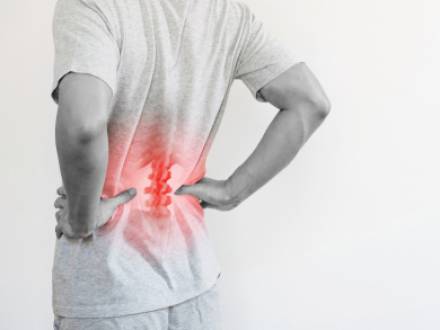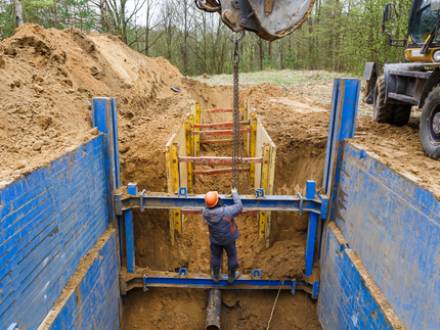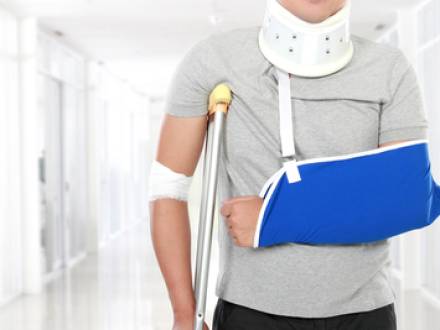Recent Blog Posts
Does Workers’ Compensation Cover Respiratory Conditions in California?
 Workers’ compensation benefits in California can cover respiratory and other occupational conditions if they are caused by work. However, proving the connection between your illness and your job can be challenging. A Hollister, CA workers’ compensation attorney can help you understand your rights and guide you through filing a claim.
Workers’ compensation benefits in California can cover respiratory and other occupational conditions if they are caused by work. However, proving the connection between your illness and your job can be challenging. A Hollister, CA workers’ compensation attorney can help you understand your rights and guide you through filing a claim.
Common Respiratory Conditions in the Workplace
Workers in many industries face health risks from breathing in harmful substances. Some respiratory conditions often connected to workplace exposure in California include:
-
Occupational asthma: Asthma can start or worsen because of repeated on-the-job exposure to irritants or allergens, such as dust or chemical fumes.
Reasons for a Workers’ Compensation Claim Denial in California
 Receiving a denial for a workers’ compensation claim can feel defeating. However, there are common reasons that these claims are denied, and an experienced Gilroy, CA workers’ compensation attorney can help you fight an unfair judgment. The first step is to understand why your claim was not accepted. More often than not, there is an obvious solution.
Receiving a denial for a workers’ compensation claim can feel defeating. However, there are common reasons that these claims are denied, and an experienced Gilroy, CA workers’ compensation attorney can help you fight an unfair judgment. The first step is to understand why your claim was not accepted. More often than not, there is an obvious solution.
Common Reasons for Workers’ Compensation Claim Denials in California
The most common reasons for workers’ compensation claim denial in California are related to issues addressed under state labor laws:
-
Lack of medical evidence: If your medical records do not clearly connect your injury to your work duties, your claim may be denied.
-
Injury not reported on time: Injured workers must notify their employer within 30 days of the injury, according to Labor Code § 5400.
How Long Can I Stay on Workers’ Comp With a Spinal Cord Injury in CA?
 A spinal cord injury can happen in an instant, causing chronic pain or loss of function that can last a lifetime. These injuries often require long-term medical care and prevent you from returning to work for months or years. If you have been hurt on the job, an experienced Hollister, CA workers’ compensation attorney can help you understand how long you can receive benefits and how California law protects your right to support during recovery.
A spinal cord injury can happen in an instant, causing chronic pain or loss of function that can last a lifetime. These injuries often require long-term medical care and prevent you from returning to work for months or years. If you have been hurt on the job, an experienced Hollister, CA workers’ compensation attorney can help you understand how long you can receive benefits and how California law protects your right to support during recovery.
How Long Does Workers’ Compensation Cover Spinal Injuries in California?
Under California Labor Code § 4656, most injured workers can receive Temporary Total Disability (TTD) benefits for a single injury for up to 104 weeks within two years from the date of injury. These benefits help replace lost wages while you recover and are unable to work. However, spinal cord injuries are often serious enough to qualify for extended benefits. If your injury involves paralysis, significant nerve damage, or other severe neurological complications, you may be eligible to receive TTD for longer. As of January 1, 2025, the minimum weekly TTD benefit is $252.03.
Do I Sue if Injured in a Trench Collapse at Work in California?
 If you suffered an injury in a trench collapse on a construction site in California, you do not need to sue your employer to recover compensation for your injuries. Instead, you need to file a workers’ compensation claim. California law requires employers to carry workers’ compensation insurance, allowing injured workers an avenue to compensation that offers fast benefits without the need to prove liability. A Gilroy, CA workers’ compensation attorney can help you determine the value of your claim and protect your right to adequate compensation.
If you suffered an injury in a trench collapse on a construction site in California, you do not need to sue your employer to recover compensation for your injuries. Instead, you need to file a workers’ compensation claim. California law requires employers to carry workers’ compensation insurance, allowing injured workers an avenue to compensation that offers fast benefits without the need to prove liability. A Gilroy, CA workers’ compensation attorney can help you determine the value of your claim and protect your right to adequate compensation.
What Should I Do After a Trench Collapse Injury on the Job?
The steps you can take in the immediate aftermath of a trench collapse injury on the job include:
-
Seek medical attention if you did not receive emergency care.
Do You Need a Lawyer for a Workers’ Comp Claim in California?
 The workers’ compensation process in California can be highly complex, even in seemingly straightforward workplace injury cases. If you were injured on the job and need assistance, you can contact a San Benito County workers’ compensation attorney anytime after the accident. Experienced attorneys can help with filing and pursuing a claim, handling everything from communication with the insurance company to gathering supporting evidence.
The workers’ compensation process in California can be highly complex, even in seemingly straightforward workplace injury cases. If you were injured on the job and need assistance, you can contact a San Benito County workers’ compensation attorney anytime after the accident. Experienced attorneys can help with filing and pursuing a claim, handling everything from communication with the insurance company to gathering supporting evidence.
When Should You Hire a Lawyer for a Workers’ Compensation Claim in California?
Sometimes, filing for workers’ comp is a straightforward process, but that is not always the case. Some common examples of times when you would benefit from hiring an experienced workers’ compensation attorney include:
Can I Get Permanent Benefits From a CA Workers’ Compensation Case?
 Workers’ compensation benefits help injured employees get the financial support they need after a work-related injury without the need to prove fault. For some, these benefits are temporary – enough to keep you on your feet until you are healed and released to return to work. However, if you suffer severe injuries that profoundly impact your ability to work again, a Santa Clara County workers’ compensation attorney will guide you through the complex application process for permanent disability benefits.
Workers’ compensation benefits help injured employees get the financial support they need after a work-related injury without the need to prove fault. For some, these benefits are temporary – enough to keep you on your feet until you are healed and released to return to work. However, if you suffer severe injuries that profoundly impact your ability to work again, a Santa Clara County workers’ compensation attorney will guide you through the complex application process for permanent disability benefits.
What Are Permanent Workers’ Compensation Benefits?
Permanent disability (PD) benefits offer long-term, sometimes lifetime, benefits through California’s workers’ compensation insurance program to accommodate individuals who suffer life-altering injuries in a workplace accident. These injuries often include injuries like paralysis, amputated limbs, and other serious, permanent changes that result in loss of earning capacity. If your injuries hinder you from performing the job that you did before or from working at all, PD benefits are designed to pay you for your lost earnings.
Death Benefits for the Family of Someone Who Died on the Job in CA
 Workers’ compensation insurance covers the financial damages incurred from a work-related injury, and when the accident results in death, family members who financially depended on the victim can claim death benefits. For many, these benefits can have a significant impact on their financial stability during an emotionally challenging time. Learn more about the availability of death benefits, and reach out to an experienced Gilroy, CA workers’ compensation attorney to discuss your case.
Workers’ compensation insurance covers the financial damages incurred from a work-related injury, and when the accident results in death, family members who financially depended on the victim can claim death benefits. For many, these benefits can have a significant impact on their financial stability during an emotionally challenging time. Learn more about the availability of death benefits, and reach out to an experienced Gilroy, CA workers’ compensation attorney to discuss your case.
Who Can Collect Death Benefits from a Workers’ Compensation Claim in California?
Those who are eligible to receive death benefits through a workers’ compensation claim in California are categorized as total or partial dependents. Relatives who qualify for death benefits include:
Workers’ Compensation and Employer Retaliation in California
 Getting injured on the job can be devastating, physically, emotionally, and financially. The one solace is knowing that workers’ compensation benefits ensure you will receive the financial support you need to get you back on your feet. Unfortunately, employers sometimes retaliate, often over cost concerns, but California law is on your side. So, what does retaliation look like, and what can you do to combat it? An experienced San Benito County, CA workers’ compensation attorney will explain your rights and help you get the support you need.
Getting injured on the job can be devastating, physically, emotionally, and financially. The one solace is knowing that workers’ compensation benefits ensure you will receive the financial support you need to get you back on your feet. Unfortunately, employers sometimes retaliate, often over cost concerns, but California law is on your side. So, what does retaliation look like, and what can you do to combat it? An experienced San Benito County, CA workers’ compensation attorney will explain your rights and help you get the support you need.
What Does Employer Retaliation After a Workers’ Compensation Claim Look Like?
Sometimes, employer retaliation can be blatantly in your face, but more often than not, it is hidden in context. If you think your employer is acting differently after your workers’ comp claim, you are likely correct. Some common ways that retaliation manifests after you file include:
What to Do if You Are Falsely Accused of Workers' Comp Fraud
 Being injured on the job is stressful enough, but being accused of workers' compensation fraud adds a layer of fear and confusion that no honest worker should have to face. If you have received a notice of investigation or charges related to your workplace injury claim, you are not alone. False or mistaken fraud allegations happen more often than many people realize.
Being injured on the job is stressful enough, but being accused of workers' compensation fraud adds a layer of fear and confusion that no honest worker should have to face. If you have received a notice of investigation or charges related to your workplace injury claim, you are not alone. False or mistaken fraud allegations happen more often than many people realize.
In California, workers’ compensation fraud is a serious accusation that can lead to criminal charges, job loss, and financial penalties. If you are facing this situation, it is important to take immediate steps to protect yourself with the help of our California workers’ compensation attorneys.
What Is Workers' Compensation Fraud?
Workers’ compensation fraud occurs when someone knowingly provides false information in order to obtain benefits. Under California law, this can include actions such as:
Can Your Employer Make You Go to Arbitration for a Denied Workers’ Comp Claim?
 If your workers’ compensation claim has been denied, you may expect to take the matter before the state workers’ compensation board. But in some cases, workers are surprised to find that their employer is demanding arbitration instead. This can be confusing and frustrating — especially when you are already dealing with an injury and financial uncertainty.
If your workers’ compensation claim has been denied, you may expect to take the matter before the state workers’ compensation board. But in some cases, workers are surprised to find that their employer is demanding arbitration instead. This can be confusing and frustrating — especially when you are already dealing with an injury and financial uncertainty.
Our firm takes pride in helping injured workers navigate the complexities of the California workers’ compensation system. Our Hollister, CA workers’ compensation lawyers offer free consultations and are committed to making sure injured workers are treated fairly, whether through traditional hearings or alternative dispute resolution.
When Is Arbitration Used in Workers’ Comp Disputes?
Arbitration is a form of dispute resolution where a neutral third party — the arbitrator — hears the case and issues a binding decision. It is less formal than a court hearing but still requires preparation and legal knowledge. In California, workers’ compensation claims are typically resolved through the Workers’ Compensation Appeals Board (WCAB). However, in rare circumstances, arbitration may be introduced through an employment contract or collective bargaining agreement.








